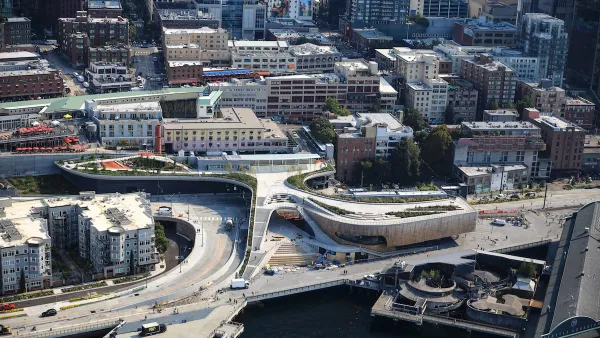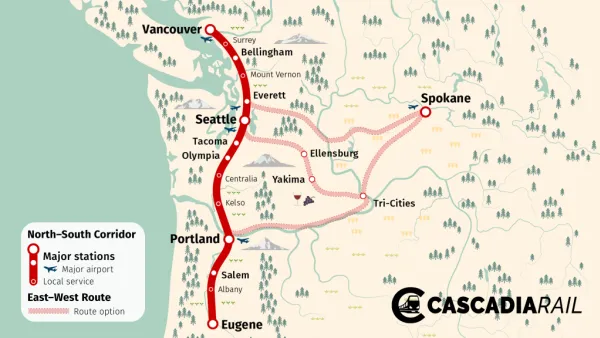Seattle schools are often forced to reduce their playground space in favor of parking and circulation for private cars, but altering the city code could change that.

An analysis of recent retrofits at two Seattle schools shows that "if the Seattle School District had complied with the City requirement for private car storage in the recent retrofits at Magnolia and Queen Anne Elementaries it would have obliterated all outdoor play space and a significant amount of indoor education space." Margaret McCauley argues that city code requiring Seattle schools to replace playground and activity space with surface parking and car traffic doesn't address the needs of bike riders and pedestrians and takes away valuable outdoor space.
With low-income families less likely to own cars, devoting "scarce land resources to circulation for privately owned cars is inequitable." McCauley writes that "encouraging a dispersed traffic pattern, where families (excluding the medically fragile of course) park remotely in the neighborhood and walk the final block with their kids, produces a safer setting" and encourages friendlier interactions than expecting families to "be able to easily drive to and from the school at arrival and departure times."
According to McCauley, a city code change that prioritizes "safe routes to school instead of a requirement for on-site parking and drop-off zones" would "allow Seattle’s School Traffic Safety Committee to focus efforts on safe routes to school rather than parking plans that are counterproductive to safety."
FULL STORY: Seattle City Code Requires We Pave Over Playgrounds, But We Could Change That

National Parks Layoffs Will Cause Communities to Lose Billions
Thousands of essential park workers were laid off this week, just before the busy spring break season.

Retro-silient?: America’s First “Eco-burb,” The Woodlands Turns 50
A master-planned community north of Houston offers lessons on green infrastructure and resilient design, but falls short of its founder’s lofty affordability and walkability goals.

Delivering for America Plan Will Downgrade Mail Service in at Least 49.5 Percent of Zip Codes
Republican and Democrat lawmakers criticize the plan for its disproportionate negative impact on rural communities.

Test News Post 1
This is a summary

Test News Headline 46
Test for the image on the front page.

Balancing Bombs and Butterflies: How the National Guard Protects a Rare Species
The National Guard at Fort Indiantown Gap uses GIS technology and land management strategies to balance military training with conservation efforts, ensuring the survival of the rare eastern regal fritillary butterfly.
Urban Design for Planners 1: Software Tools
This six-course series explores essential urban design concepts using open source software and equips planners with the tools they need to participate fully in the urban design process.
Planning for Universal Design
Learn the tools for implementing Universal Design in planning regulations.
EMC Planning Group, Inc.
Planetizen
Planetizen
Mpact (formerly Rail~Volution)
Great Falls Development Authority, Inc.
HUDs Office of Policy Development and Research
NYU Wagner Graduate School of Public Service





























